Event Name: Industrial Visit to Siddipet
Objective:
To understand waste management practices and gain first-hand knowledge of the solid waste management system.
To explore sustainability initiatives like analysing the role of biogas plants in converting organic waste into energy and how composting methods contribute to sustainability.
To evaluate the effectiveness of municipal policies and initiatives in promoting waste segregation and recycling.
To observe Municipal Waste Processing Facilities.
To analyze environmental and health impacts and learn about innovative waste management solutions.
To encourage community participation in solid waste management and understanding policy implementation and future developments.
Outcomes:
Enhanced Understanding of Waste Management- Gained practical knowledge of solid waste segregation, recycling, and disposal processes.
Insights into Sustainable Waste Processing— learned about composting techniques (aerobic, anaerobic, and vermicomposting) for organic waste conversion.
Awareness of Environmental and Health Impacts- Recognized the adverse effects of improper waste disposal, such as groundwater contamination and air pollution. Understood the health risks sanitation workers face and the importance of safety measures.
Knowledge of Municipal Waste Management Policies- Learned about government initiatives, such as the Ecolastic project and the proposed bricking plant, to enhance waste recycling.
Exposure to Community Engagement Strategies- Observed the impact of awareness campaigns in encouraging responsible waste disposal practices.
Understanding Technological Advancements in Waste Management- Explored the integration of technology in waste processing, including biogas extraction and plastic recycling.
Encouragement for Future Sustainable Practices- Developed a better perspective on how small individual efforts contribute to large-scale environmental conservation.
Brief Report:
As part of our academic curriculum, we visited Swachh Badi, the Dump Yard, the Biogas Plant, and the Municipal Corporation Office in Siddipet to understand the city's solid waste management system and sustainability initiatives. The visit provided valuable insights into waste segregation, recycling, composting, and biogas production, along with the municipality’s efforts to enhance waste management practices under the vision of T. Harish Rao Garu.
Visit to Swacch Badi
At Swachh Badi, we were welcomed by Ms. Deepti Nagraj, a key municipal official, who explained the comprehensive waste management system in place. Siddipet has 49 wards, serving 51,000 families and generating nearly 50 tonnes of waste daily. The municipality follows a three-way segregation system:
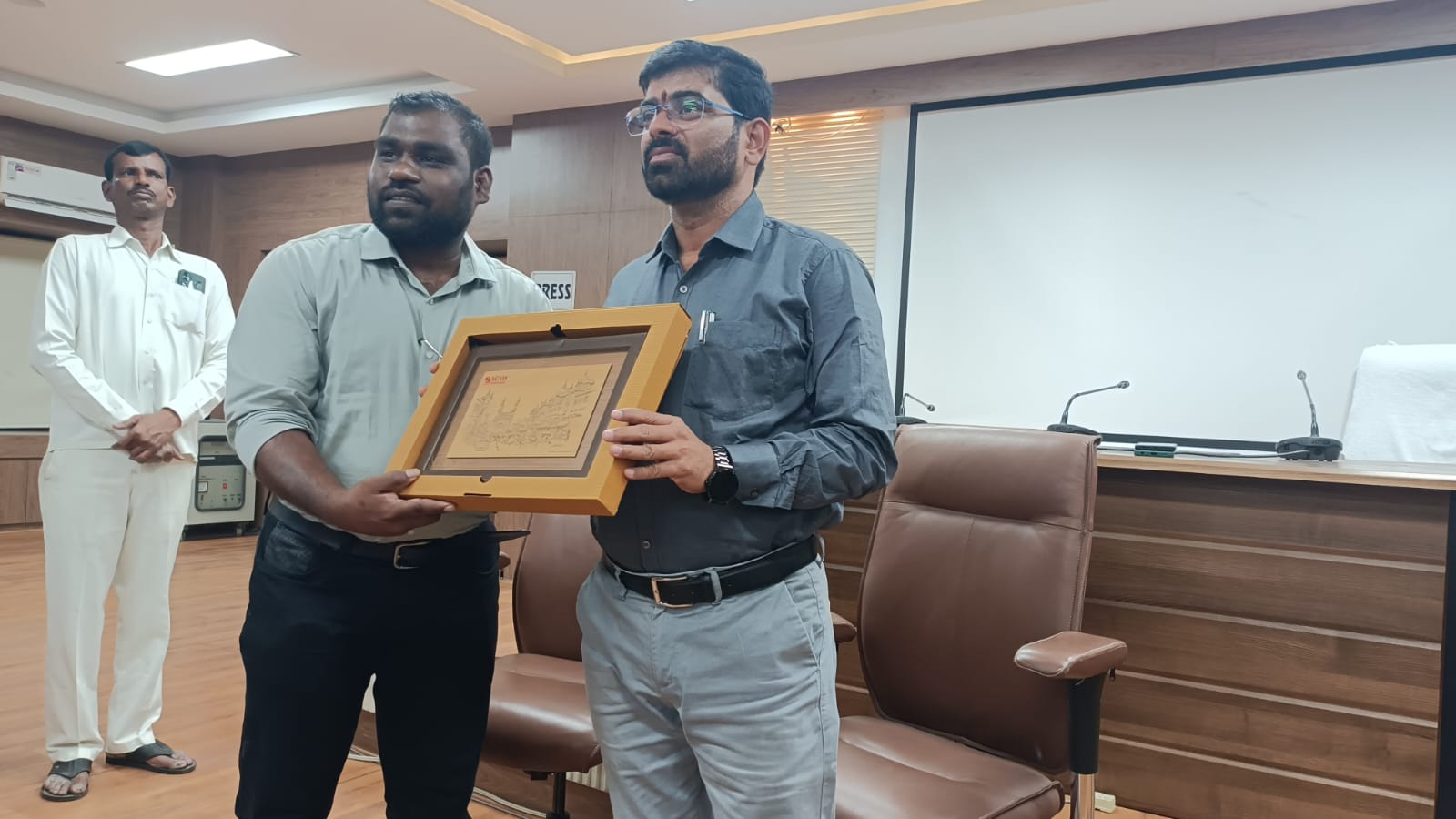
(Dr. P. Ravi Kiran felicitating the Municipal Commissioner of Siddipet)
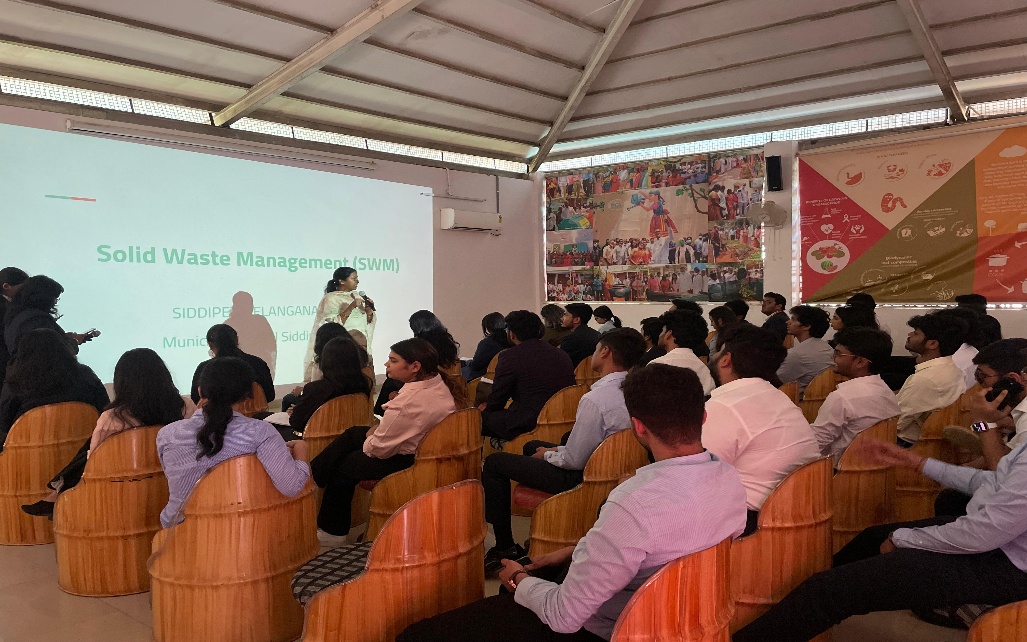
(Ms. Deepti Nagraj welcoming the students and introducing the concept of SWM)
Wet Waste (60%): Processed into aerobic, anaerobic, and vermicompost to produce manure.
Dry Waste (35%): Sent to recycling facilities like ITC and plastic mills.
Hazardous Waste (5%): This includes medical and sanitary waste, which requires careful disposal.
A major achievement highlighted was the door-to-door awareness campaign to educate citizens on source segregation. The campaign was completed in 62 days, ahead of the targeted 90 days. Each household was encouraged to follow proper waste disposal methods with officials.
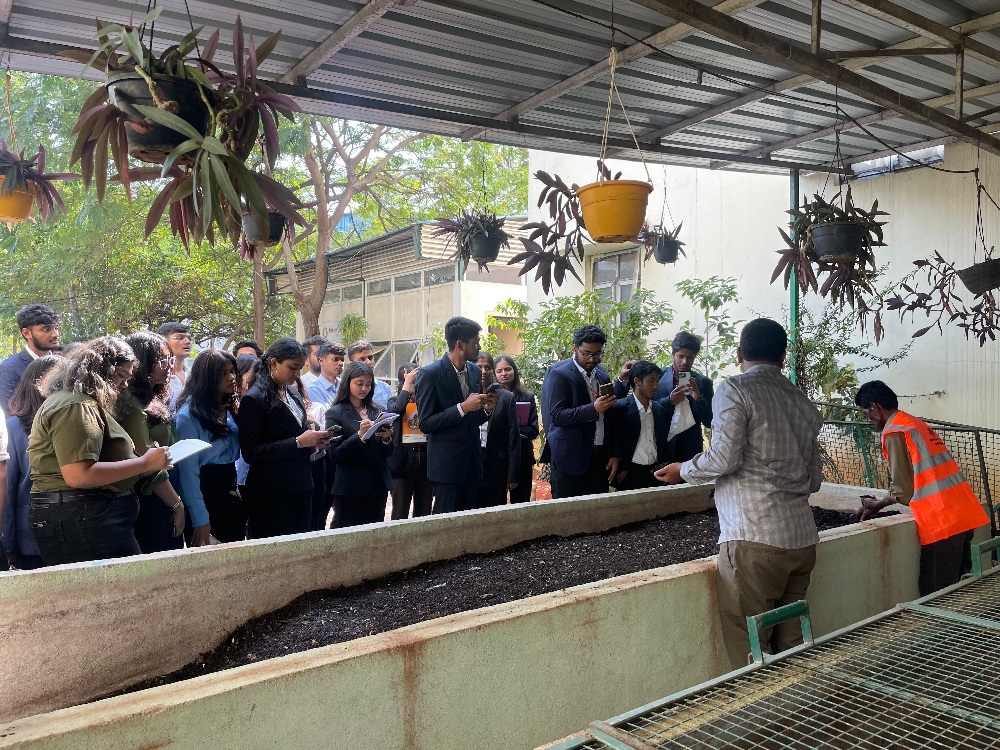
(A Municipal Official explaining the process of composting at large scale)
Visit to the Dump Yard
Our next stop was the municipal dump yard, where we observed the waste bifurcation process. Municipal workers segregate collected waste, which is then sent to various industries:
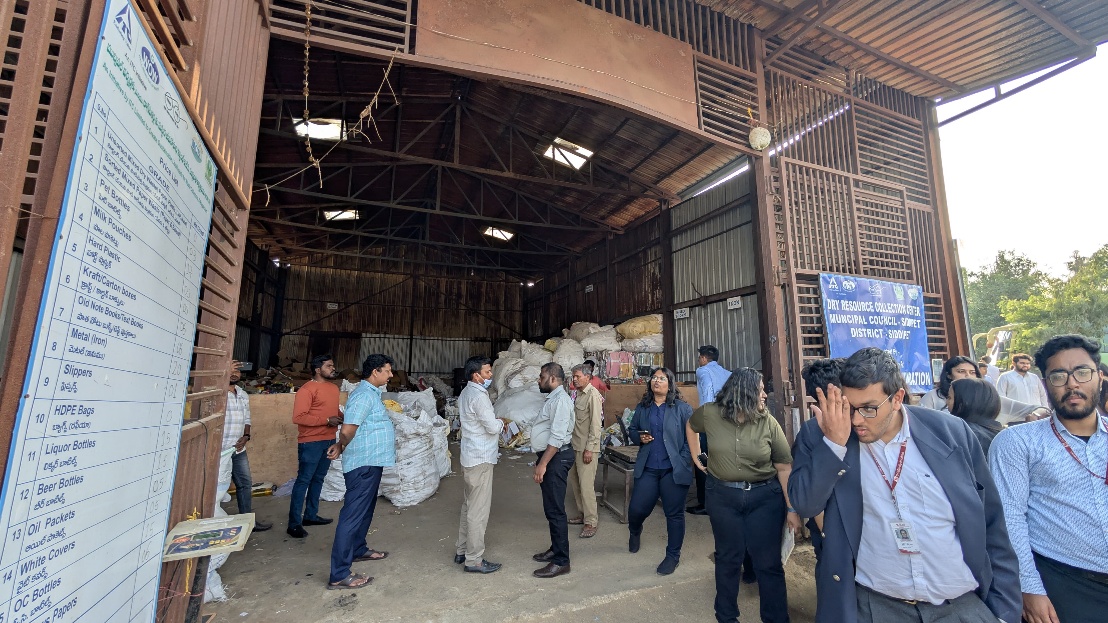
( The Dump Yard)
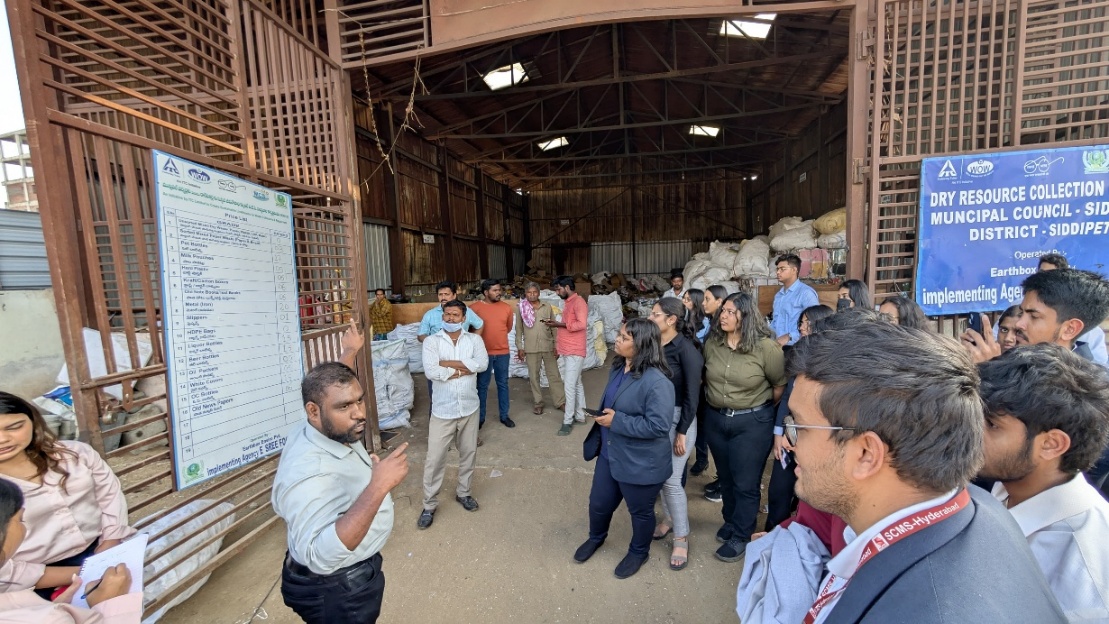
(Students learning about the price distribution in waste segregation)
One of the major concerns discussed was the impact of improper waste disposal on the environment, such as groundwater contamination, air pollution, and health hazards for workers.
Visit to the Biogas Plant
At the biogas plant, we learned about the conversion of organic waste into biogas, which is an eco-friendly alternative to fossil fuels. The plant generates 250 kg of CNG gas daily from wet waste collected across Siddipet.
Additionally, we observed the sewage treatment process, where wastewater is treated and filtered before being redirected to parks and agricultural lands.
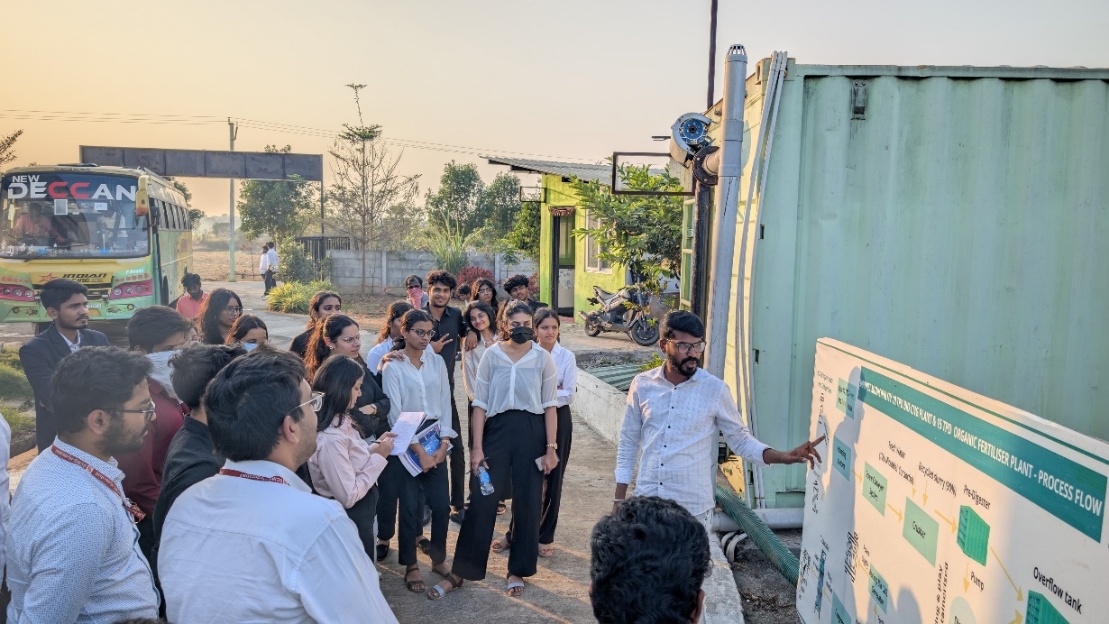
(Environment Engineer explaining the process of Organic Fertiliser Plant)
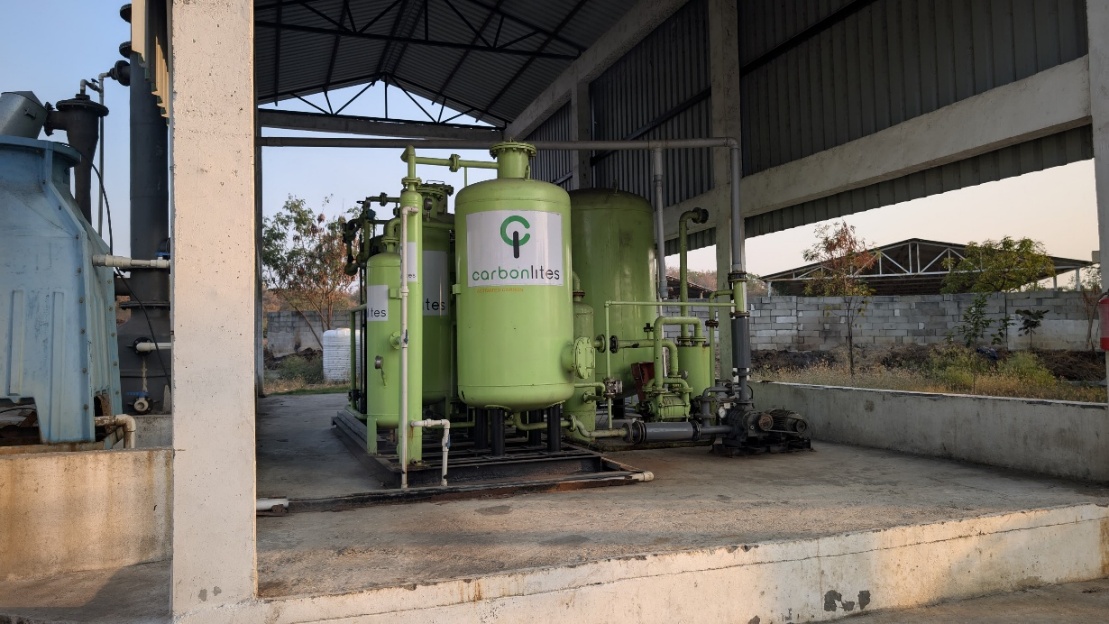
(The Bio Gas Plant)
Visit to the Municipal Corporation Office
The final stop was the Municipal Corporation Office, Siddipet, where we met the Municipal Commissioner. During an interactive session, the Commissioner asked students about their learnings and experiences from the visit.
Key Discussions:
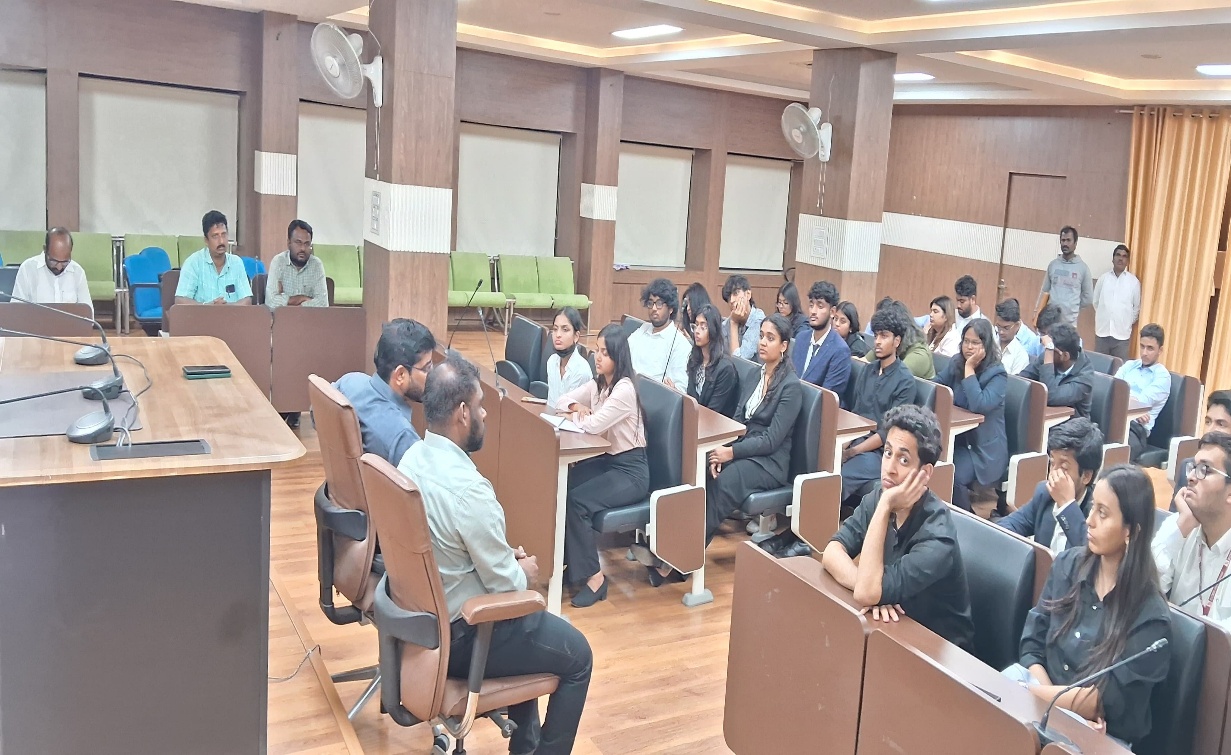
(Municipal Commisioner discussing with the students)
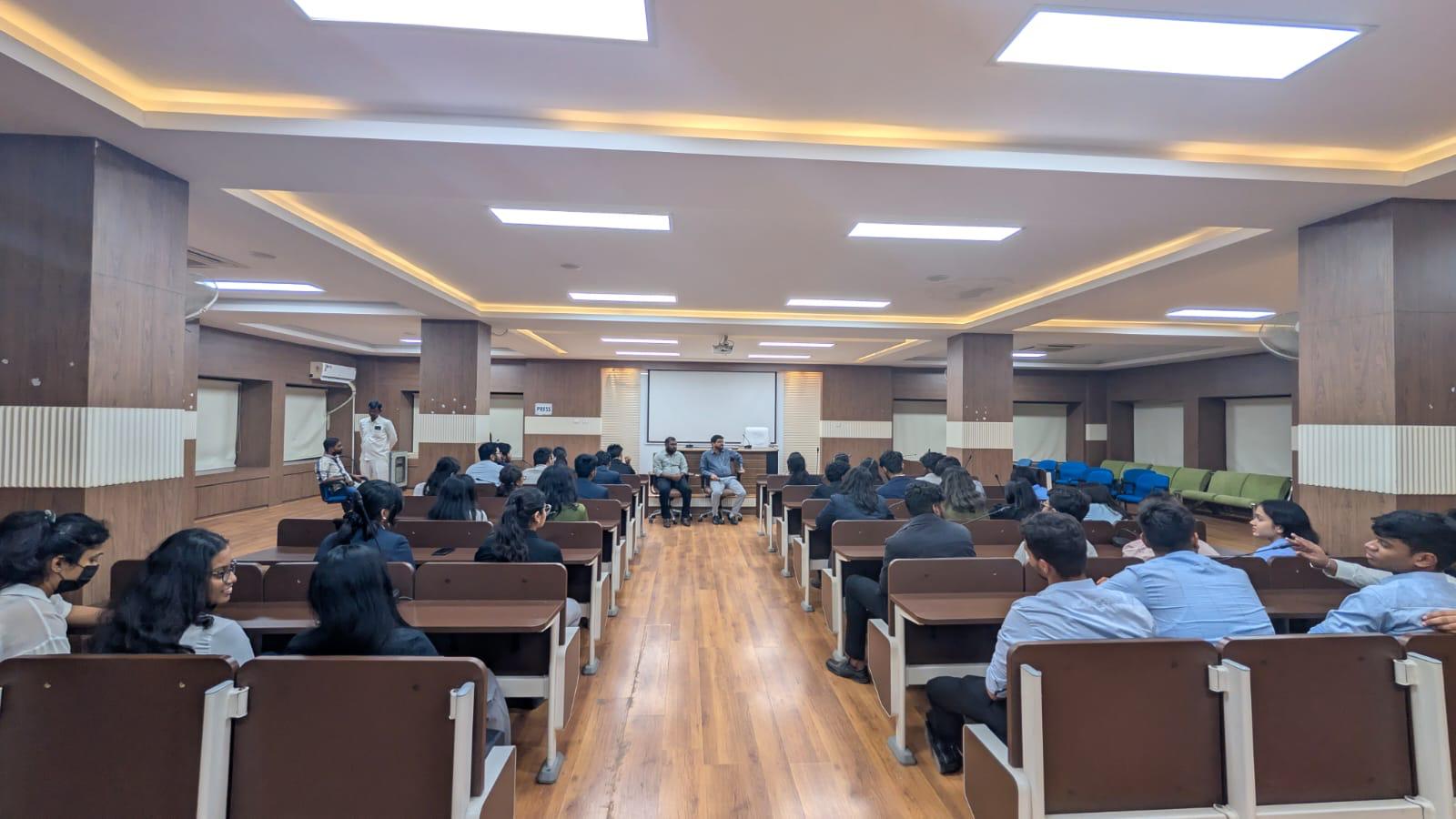
(Students discussing with the Commisioner)
Conclusion
The industrial visit to Siddipet provided invaluable insights into sustainable waste management and environmental conservation. Key takeaways included:
The visit reinforced the significance of community participation, policy implementation, and technological advancements in creating a sustainable and waste-free future. We extend our gratitude to the Siddipet Municipal Corporation and SCMS, Hyderabad, for organizing this educational experience.
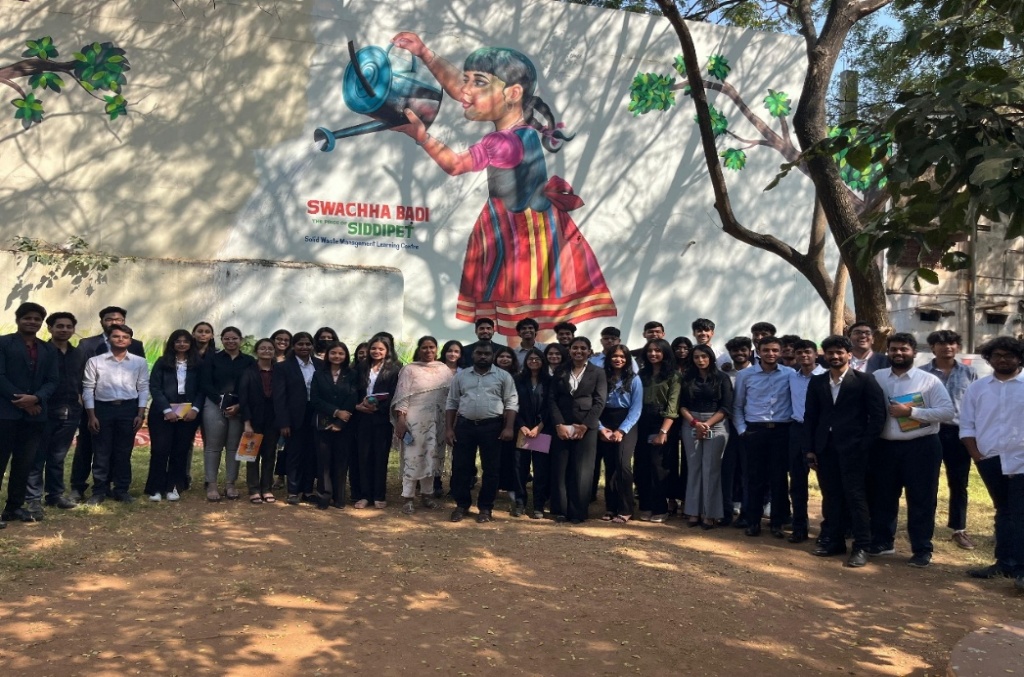
(The BBA batch (2022-25), along with the faculty and staff on the industrial visit)